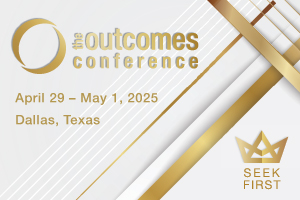
The Battle for Integrity By Dan Busby
While far from perfect, King David is one of the first ones we think of when the discussion turns to integrity. Asaph, the royal court composer, said David shepherded them with “the integrity of his heart and guided them by the skillfulness of his hands” (Psalm 78:72, KVJ).
David led Israel with “skillful hands.” Yes, he could cast a vision with the best of them. He could recruit strong leaders and organize, motivate, and inspire his followers. And he knew how to get things done. But these leadership skills alone didn’t make David a true servant of God. What separated David from most other leaders was his motive for leading. This motive is what the psalmist called “integrity of heart.”
It is only natural to want to hire the best and the brightest. Skill is important — but hearts guide hands. David could lead with skillful hands because his integrity of heart drove them.
As the recessionary environment drags on, the temptation can be to place undue importance on skillful leadership and less on integrity. When finances drain, organizational strength may also drain, and with this comes a battle where integrity is won or lost.
Governance
When finances drain, governance focuses, and thus, the integrity of the governance process, may also drain.
Once, quality time was spent on risk management, financial oversight, strategic planning, and succession planning. However, with no thanks to the economy, many boards have been more attentive to severance planning, cutting back or losing programs and shoring up dwindling reserves. These are all proper agenda discussions when finances are tight.
Yet when boards and senior leaders take governance shortcuts and focus their limited time and energies on survival mode — instead of spiritually discerning God’s voice (the most critical governance function) — ministry work becomes more complex and chaotic, not less. Yes, the integrity of heart may require us to make the tough financial calls, but the integrity of heart will also ensure that our governance compass is calibrated on our kingdom calling.
Financial management
When finances drain, the financial management staff may be cut too deeply, raising concerns about the integrity of the financial management process.
When financial management staff is reduced, are the fundamentals still strong? Is the accounting for donor-restricted gifts still adequate? Is the substantiation for expenses still properly maintained? Does the financial reporting to leadership and staff still occur on a timely and accurate basis? Is all governmental and other compliance reporting kept up-to-date? Are fraud risks minimized?
Fundraising/stewardship
When finances drain, integrity in raising resources may also drain.
With the new reality of raising resources comes the integrity-losing danger of playing fast and loose with our communications with donors. There is an increased temptation to over-promise and under-deliver, especially to raising restricted funds. There is a heightened risk of pushing the edge of the envelope in our claims of ministry accomplishments. After all, the numbers are close.
The failure to maintain high integrity in the stewardship process is a cancer that will destroy the integrity of organizations.
Where else in an organization is there the potential for a lapse in integrity?
##
Dan Busby is President of ECFA, the premier Christian accrediting organization. ECFA is also sponsoring the Commission on Accountability and Policy for Religious Organizations Excerpt Outcomes Magazine Winter 2012.




